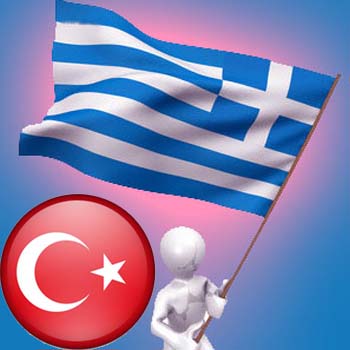Both sides of the Aegean optimistic for future ties
 Athens/Istanbul - Optimism is rife on both sides of the Aegean Sea that bilateral relations between Greece and Turkey will see a new era of rapprochement following the election of George Papandreou as Greece's new prime minister.
Athens/Istanbul - Optimism is rife on both sides of the Aegean Sea that bilateral relations between Greece and Turkey will see a new era of rapprochement following the election of George Papandreou as Greece's new prime minister.
But experts also warn that unresolved issues, particularly the Cyprus problem, could once again drive a wedge between the two neighbours.
Papandreou, who also appointed himself foreign minister, will visit Istanbul Friday for a meeting of the Southeast European Cooperation Process (SECCP).
"Papandreou has a good reputation in Turkey, which is an asset for the relations," says Sami Kohen, a veteran foreign policy analyst for the Turkish daily Milliyet.
"He has helped defuse the tensions between the two countries and has good connection with his counterparts."
Credited with boosting ties with neighboring Turkey when he was foreign minister in the 1990s along with Turkey's late foreign minister Ismail Cem, Papandreou opted to take over the foreign ministry portfolio himself.
This was seen as partly an effort to jump-start the bilateral relations with Turkey, which have ground to a standstill after a decade of steady improvement.
The two NATO countries have nearly come to war three times in the past 30 years over their differences, which include air and territorial rights in the Aegean as well as the over divided island of Cyprus.
Today, though, Greece is one of the staunchest supporters of Turkey's European Union membership bid and trade relations between the two countries have grown to historic levels.
Theodore Couloumbis, a professor of international relations at the University of Athens and vice-president of the Hellenic Foundation for Europe and Foreign Policy, told dpa that Greece's new prime minister "will not necessarily have a tougher policy nor a drastically different policy than the previous government."
"Papandreou is well-known for his efforts to improve relations with Turkey and I believe that he will give a new start to relations with Turkey through open dialogue."
But Papandreou will also want to see genuine steps from Ankara on the issues that the two countries don't agree on, Couloumbis says.
First and foremost is the issue of Cyprus, which though divided is now an EU member. The issue remains a major hurdle in Turkey's EU negotiations, which began in October 2005 and have been partially suspended because of the political impasse.
Turkey does not recognise the Greek Cypriot government and supports the breakaway Turkish Cypriot state in northern Cyprus, where it has stationed an estimated 40,000 troops. Greek Cypriots, on the other hand, say they will not agree to Turkey joining the bloc as long as the island is partitioned.
The Greek and Turkish Cypriot governments launched renewed peace talks in September 2008, but they have made slow progress. There is concern that the island is sliding towards permanent partition, a situation that could severely strain both Turkey-EU relations and those between Ankara and Athens.
"What I fear is that if there is a problem over the Cyprus issue, then Greece might come to a point where even Papandreou will feel that he will have to interfere," says Milliyet's Kohen.
Other problems also continue to dog Turkey and Greece.
Athens, under the previous conservative government, had grown concerned about what it claims were continuing airspace violations in the Aegean by Turkish warplanes.
Ankara argues that it does not carry out any airspace violations, saying it is flying within its own territory.
The issue was brought up during the last official trip by Greek Prime Minister Costas Karamanlis to Ankara in January 2008 and in bilateral talks on the sidelines of the June OSCE meeting on the Greek island of Corfu, but Athens claims that Ankara has made no effort to defuse the long-running territorial disputes.
The issue of illegal immigration is increasingly also becoming a source of tension between the two countries.
Turkey is a major transit route for migrants trying to reach Europe. As a result, Greece has seen a surge of illegal immigrants head to its islands in recent years from the nearby Turkish coast. Last year, more than 148,000 illegal immigrants where arrested, an increase of 30 per cent from the previous year.
Greek officials have said they would like to see Ankara do more to patrol its borders and stem the flow of illegal migrants into Greece. (dpa)